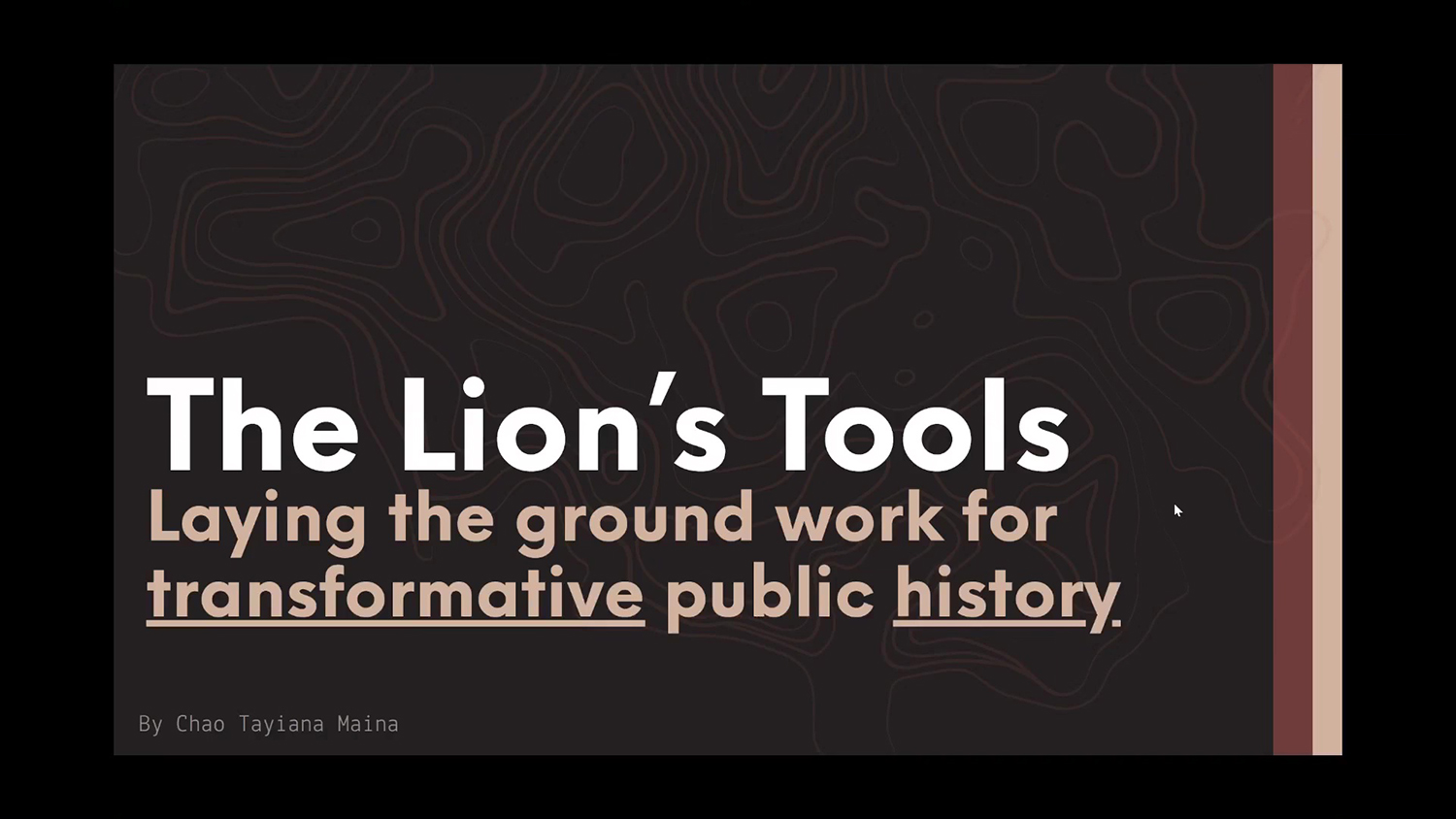Recording of the keynote speech by Chao Tayiana Maina during the the international Public History online seminar.
On June 19, 2025, Kenyan historian and digital heritage specialist Chao Tayiana Maina delivered a powerful keynote speech, as part of the international Public History online seminar Public history for contested and conflicting past(s), organised by the students of the Master in Digital and Public History (MADiPH) at the University of Luxembourg.

Her presentation titled “The Lion’s Tools: Laying the Groundwork for Transformative Public History”, engaged with the topic of resurfacing the British colonial history in Kenya, through the metaphor of the lion as in the African proverb “Until the lion learns to write, the story will always glorify the hunter.”
In her keynote, Maina addressed an audience of international students from around the world who joined that day to learn, share and exchange insights on what it means to do public history with contested and conflicting pasts.
Her keynote explored the critical role of public history as a space for intervention, disruption, and transformation. It examined how historical authority can be redistributed through resourcing, providing not only access to archives and artifacts, but also skills, platforms, mentorship, and support systems that empower individuals and communities to shape their own narratives.
In her speech, Maina associated the lion in the metaphor to the public historian, who, in the Global South context, is reclaiming through palpable actions, historical narratives that have long been constructed through the lens of colonial powers.
In presenting concrete examples from programmes, projects, and activities carried out during the past years as part of Maina’s personal research, as well as in the African Digital Heritage Foundation which she founded and is currently directing, this keynote inspired numerous questions and discussions with the attendees on how solidarity can be cultivated, where to start when the historical narrative has been completely erased and how to cultivate hope in uncertain times.
In her presentation, as in her answers, Maina certainly gave the students of the MADiPH and the attendees a lot of hope for change, by using hope, coupled with action as a resistance tool.
